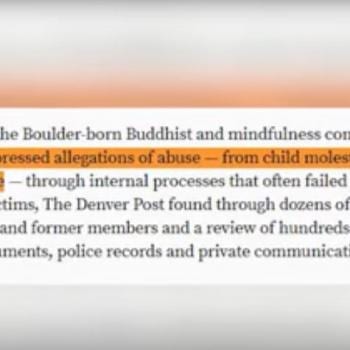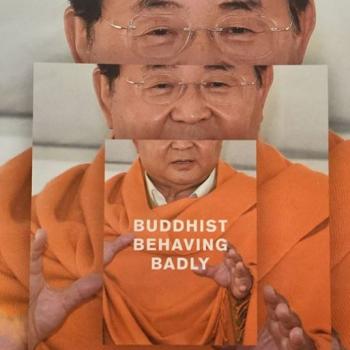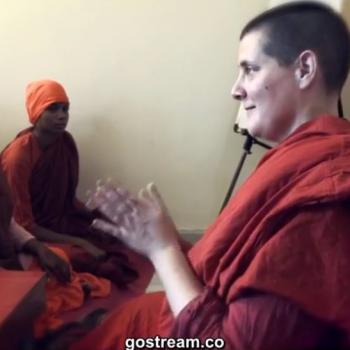I first encountered Namkhai Norbu as a young scholar working on a master’s degree in Buddhist Studies. My degree at the time focused heavily on Indo-Tibetan Buddhism under the tutelage of Paul Williams at Bristol University. For my final paper in the Tibetan Buddhism seminar I chose to write about a simple topic: Dzogchen. Prof. Williams gave me two books with Norbu’s name on them, Primordial Experience: An Introduction to rDzogs-chen Meditation, and Golden Letters: The Three Statements of Garab Dorje, First Dzogchen Master. The first is from him and the second has a forward written by him (I also dug through several scholarly books and a couple written by the Dalai Lama).
I was very impressed by his clarity and -especially for someone writing about some of the highest spiritual practices in Tibetan Buddhism- his ability to remain very grounded in his approach and language. I was impressed again today when I was directed to a quote of his, recently put on his public facebook page:
“Someone who begins to develop an interest in the teachings can tend to distance themselves from the reality of material things, as if the teachings were something completely apart from daily life. Often, at the bottom of all this, there is an attitude of giving up and running away from one’s own problems, with the illusion that one will be able to find something that will miraculously help one to transcend all that. But the teachings are based on the principle of our actual human condition. We have a physical body with all its various limits: each day we have to eat, work, rest, and so on. This is our reality, and we can’t ignore it.”
As he and a number of other teachers and practitioners have pointed out recently, we cannot deny the conventional reality and truth of day to day life, no matter how high up the Tantras or Mahamudras we have read or practiced. To do so is to cut one’s own feet off at the ankle, so to speak.
Or to use the analogy of climbing a mountain: no matter how high we ascend, we are still connected and indebted to our lowly beginnings and, if we wish to guide others, it pays to revisit the paths of the lower foothills. If we live too long in the thin air at the top, we might become diluted about our relation to others and worse, incapable of guiding others through the complex and important lower stages of climbing the path.
Support independent coverage of Buddhism by joining a community of fellow learners/practitioners at Patreon.
‘Like’ American Buddhist Perspectives on facebook.












